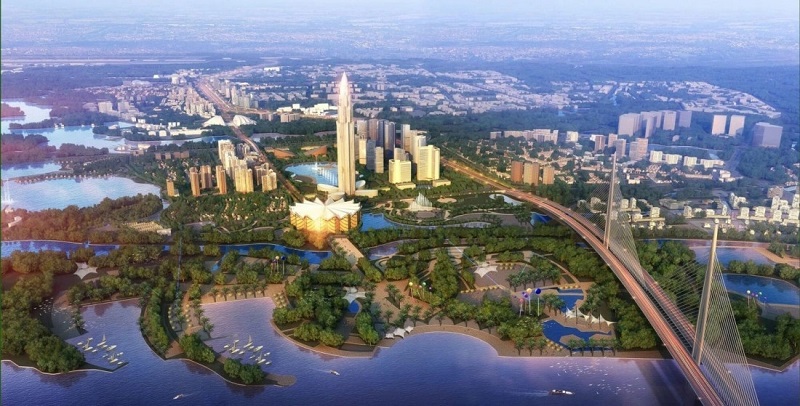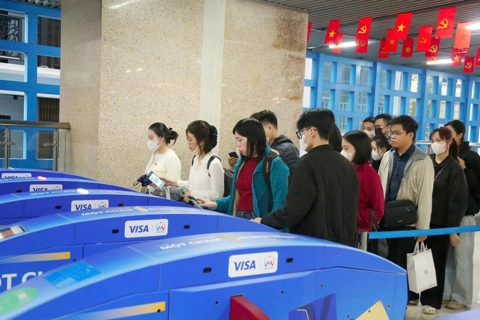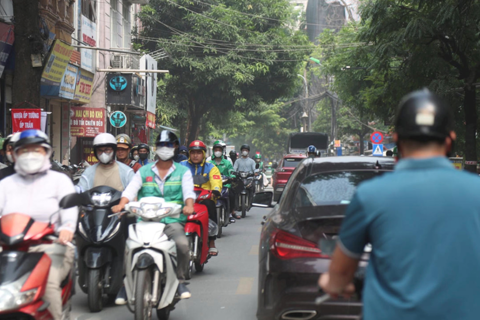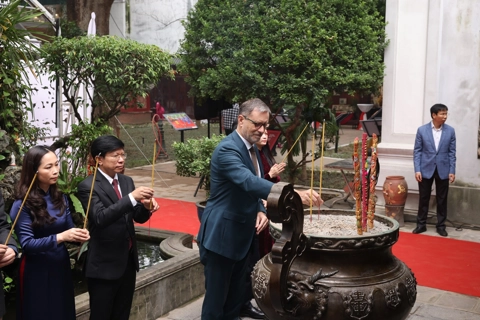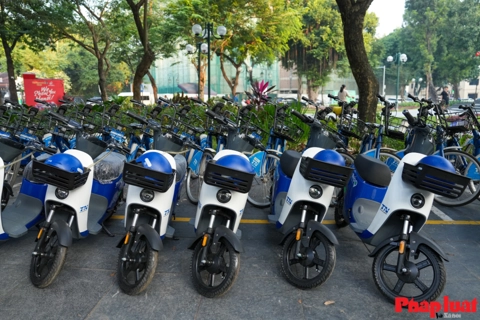Smart City environmental impact assessment approved
Construction of the Smart City project in Hanoi will begin soon after the main contractor's environmental impact assessment is approved.
The Ministry of Natural Resources and Environment has recently approved the environmental impact report for the smart city project in Hanoi’s Dong Anh District.
| The rendered graphics of the smart city in Dong Anh District. Photo courtesy of BRG Group |
Accordingly, the ministry has agreed with the project developer, the North Hanoi Smart City Development JSC, to build residential areas, schools, office buildings, and public facilities on an area of 271.45 hectares. The smart city will be home to more than 25,700 people.
In the first phase, the developer will build 60 townhouses, 247 villas, one apartment building, nine multi-purpose buildings, two secondary schools, two primary schools, and three kindergartens.
Phases two and three will continue construction with 209 villas, two kindergartens, four mixed-use buildings, and a K12 international school. The final two phases will include seven mixed-use buildings and a 108-story residential, financial, and commercial building.
Regarding the 108-story multi-purpose building project, the Ministry asks the contractor to work with the General Staff under the Ministry of National Defense and the Civil Aviation Department of Vietnam under the Ministry of Transportation to revise the construction plan and obtain approval from the authorities on the building's height.
It aims to "limit and minimize the impact of the construction on the operation of Noi Bai International Airport and ensure that the construction complies with the law," the ministry said.
To facilitate project implementation, the developer will clear an area of more than 41,700m2 in Hai Boi and Vinh Ngoc communes with public buildings, local houses, kindergartens, and public infrastructure.
As the implementation of the project is predicted to cause environmental issues, the ministry has asked the project contractor to come up with a solution for the resettlement of the residential areas. The company is also required to maintain the existing conditions of pagodas, martyrs' cemeteries, and other facilities.
Specifically, the ministry is asking North Hanoi Smart City Development JSC to build a wastewater treatment system.
In addition, the project's construction sites must be covered by aluminum walls with a height of 3m, while the operation of trucks and other heavy machinery is restricted. The roads must be kept clean with water trucks during the project.
The total investment for the Smart City project is estimated at US$4.2 billion. The Hanoi government launched the project in early November 2023, and it is scheduled to be completed in Q4/2032.
The main contractor for the project, North Hanoi Smart City Development JSC, is a joint venture between the real estate company BRG Group and its Japanese partner Sumitomo.

